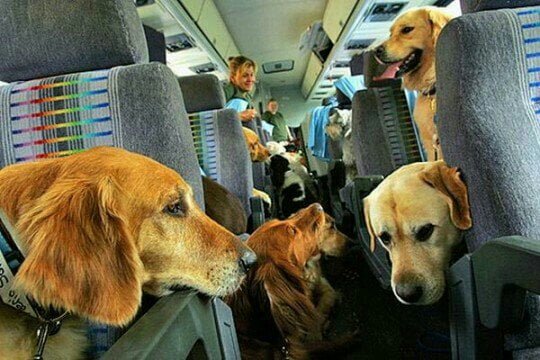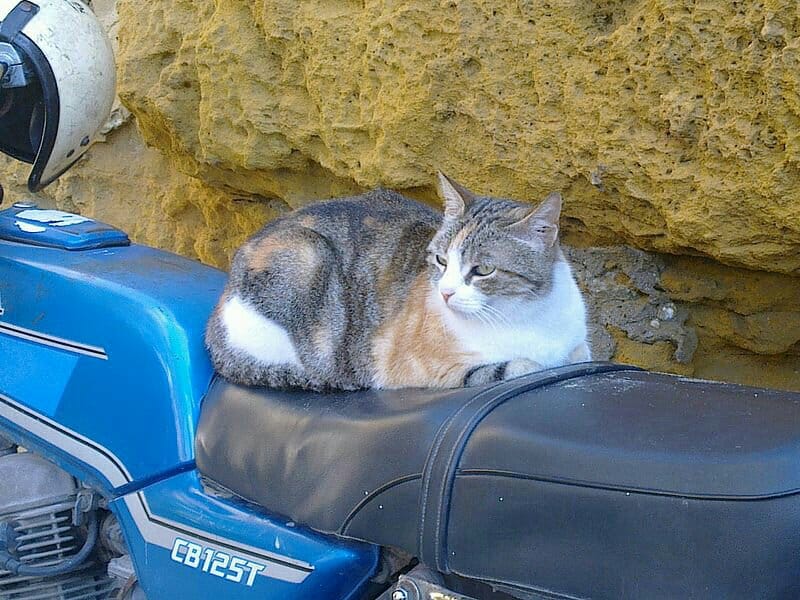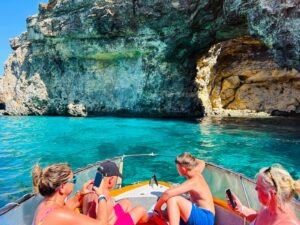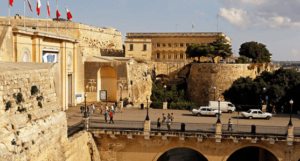Are you crazy about your four-legged friend? Don’t worry, it should not be considered as a “brake” for your vacations or your expatriation in Malta, but it should not be considered as a detail either.
Indeed, your beloved pet may be the cutest among his fellow creatures, but that doesn’t mean that it’s easy to travel with him. Traveling with a dog, a cat, a reptile or a bird requires certain specificities.
We will see together what are all the constraints and steps required to bring your pet to Malta.
What you should know before you leave: the condition of animals in Malta
If you are already in Malta, you may have noticed that there are few dogs in Malta. There are no stray dogs, and few domesticated dogs walking on the street on a leash. Or perhaps it is the astronomical presence of cats that suggests that there are few canines?

Indeed, Malta is home to many cats, which are much loved by tourists and pampered by the locals. These small felines are considered sacred on the whole archipelago. A shelter in the street here, bowls in public gardens there … You will often be asked to make a donation so that associations take care of them. Many associations such as Stray Animal Support Group or Animal Care Malta, are constantly raising funds for vets and food. In many supermarkets and grocery stores, there are even small pools inviting customers to make donations.

The Maltese also love feathered animals, and they bring them everywhere. It is not uncommon to see people driving in their cars with a cage on their lap. Otherwise, especially in Gozo, it is common to see a small gathering of grandfathers and grandmothers, each sitting on his chair on a sidewalk, with a large birdcage in the middle.
At the entrance of Manoel Island, near Gzira, you will even find a village dedicated to all kinds of animals: chickens, guinea pigs, swans, turkeys… They are fed every day by locals and tourists.
In general, animals are respected and protected in Malta. There are no zoos, just very well maintained nature reserves, and the government only allows hunting one week a year.
Travelling with your pet and arriving in the country
Airline standards
– Air Malta: All flights offer two different options. Firstly: the transport in the cabin. For an additional 70€, you can transport your cat, small dog, rodent or other small animal in a cage that will be placed under your seat. The total weight (animal + cage) must not exceed 10kg. Air Malta will only accept the animal on board if it has been examined by an approved veterinarian within 3 days and found fit for travel. Then, the transport in hold. Rates vary between 70 and 150€ depending on the weight of the animal and include the care of the animal from the check-in to the arrival hall.
– Air France and equivalent: The conditions are generally the same as with Air Malta, and the fares are more advantageous: 55€ for a cabin trip and 100€ for a hold trip. However, you should know that if the animal and its cage weigh more than 75 kg, it cannot travel with you in the cabin or in the hold, so it will be transported by cargo.
– Ryanair: Like many low-cost airlines, Ryanair does not carry animals, with the exception of guide dogs. For other airlines (Alitalia, SwissAir, KLM, Vueling, Lufthansa…) the conditions are similar to those of Air France and Air Malta.

Ferry company standards
This section is dedicated to the adventurous who want to come to Malta with their car and to the adventurous who want to make a trip to the neighboring island of Sicily.

It is possible to take your pets with the two main companies which are Virtu Ferries and Grimaldi Lines.
The crossing takes 90 minutes, and with Virtu Ferries you can take your pet in a cage for an extra 12€, or leave them on a leash in the outdoor area for an extra 16€.
If you have rodents or small robust animals you can leave them in the car at no extra cost.
Grimaldi Lines has a kennel to accommodate dogs over 6 kilos that cannot fit in a cage.
Steps to take before travelling with your pet to Malta
General procedures: It is necessary to apply for an import permit from the Ministry of Sustainable Development for your animal, whatever it is. To allow your pet to enter Malta, you need an essential document for its passage through customs: a certificate of good health. This document is issued by a veterinarian and must be recent.
Dogs and cats: If you are pet-friendly travelers and have taken them to many countries, you know the angst of quarantine… Rest assured: Malta does not practice quarantine for animals that have spent their last 6 months in a “rabies free” or “low rabies risk” country, which is the case of most of european countries.
Your pet will still need to have been vaccinated against rabies at least 21 days prior to importation into Malta. Finally, it must be equipped with a 15-digit microchip and have a European passport.
Other animals: Enough about doggies and pussies, let’s move on to birds, fish, reptiles, rodents, rabbits… Phew, things are getting simpler: No rabies vaccination requirements. Again, you will need to be in possession of the certificate of good health that we mentioned earlier.
If your animal is a protected or endangered species, standards no longer depend on the Maltese government but are subject to the Convention on International Trade in Endangered Species of Wild Fauna and Flora. They are therefore much more complex and we invite you to consult directly the CITES website.

Steps to take once on site
First of all, you should know that regardless of the means of transportation chosen, domestic dogs and cats are examined upon arrival in Malta. Any suspicion or detection of a disease transmissible to humans leads to a thorough examination by a local veterinarian, at the animal owner’s expense.
Otherwise, the only advice we can give you is to enjoy as much as possible and to let your pet enjoy it too. If you have a dog, don’t hesitate to bring it with you to the beach. There are some public beaches that allow dogs, otherwise, all rocky beaches allow dogs to swim outside the areas marked with buoys. You can find here our top of the most beautiful beaches of the archipelago. You can also bring your dog to restaurants, most of them accept them.
Malta is a very clean country when it comes to dog waste. It’s very simple: there is none! The locals always clean up after their dogs, and the fines are very high if you don’t clean up or even if you walk your dog without a bag to pick up the waste.



















